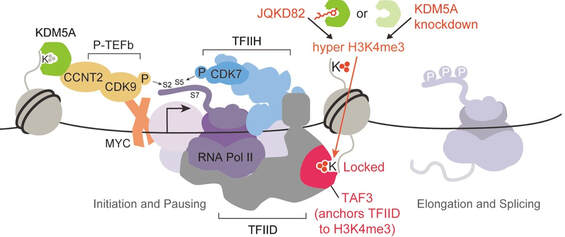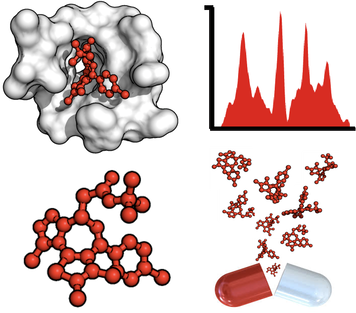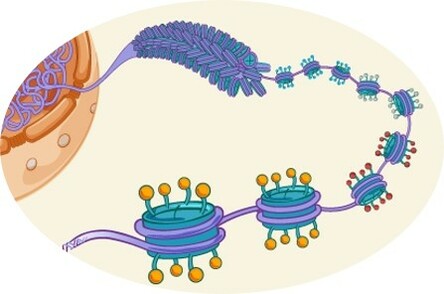Developing Small Molecules to Target Gene Regulatory Proteins in Cancer
Using a multidisciplinary approach, we study the proteins involved in gene regulatory pathways including epigenetic proteins, chromatin modification enzymes, and transcription factors. Using novel small molecules as chemical probes and chemical biology tools, we seek further understanding of these targets in cancer with the goal of establishing a biological rationale for cancer therapy.
|
Small Molecule Development
The foundation of our research begins with the rational design of small molecules targeting epigenetic proteins. Using iterative medicinal chemistry techniques along with structural and computational biology, we optimize novel small molecules for use as cancer therapeutics, as well as biological probes. |
|
Biological and Mechanistic Probing
Epigenetic proteins, classified as readers, writers and erasers, recognize, make, and remove histone modifications, respectively. These modifications can cause chromatin remodeling that can result in sustained proliferation, one of the hallmarks of cancer. Using chemical tools such as inhibitors and degraders, these proteins can be probed for further biological understanding of their role in cancer with the hopes of creating novel therapies. |
Representative Studies

Study KDM5 function in multiple myeloma:
We developed small molecule inhibitor to target KDM5 function and dissect the role of KDM5A in MM. This work has been published in Blood Cancer Discovery. Link
We developed small molecule inhibitor to target KDM5 function and dissect the role of KDM5A in MM. This work has been published in Blood Cancer Discovery. Link

Study EP300 function in neuroblastoma:
We identified selective dependency of EP300 in NB, and developed selective EP300 degrader to study its function. This work has been published in Cancer Discovery. Link
We identified selective dependency of EP300 in NB, and developed selective EP300 degrader to study its function. This work has been published in Cancer Discovery. Link


